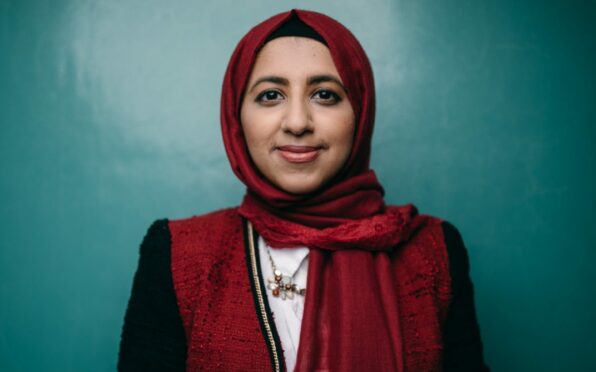
Being born and raised in Glasgow, it wasn’t until I put my headscarf on that I felt “the cold edge of people” in what I had always considered a warm and friendly city.
For many Muslims, an inquiry finding Islamophobia in Scotland is no surprise but the sheer scale of the problem had the power to shock. The report found that 83% of respondents had faced Islamophobia directly in education, employment, healthcare, security and media reporting.
Much of this Islamophobia has been cited as happening on public transport.
I know of a Muslim woman, alone with her child on the bus, who faced racial slurs and was told she was “taking our space”. There are even more stories about young Muslims being rejected from employment because they “didn’t look the part” or some that didn’t even get an interview because of their foreign name.
Sadly, Islamophobia is played out in the playground with young Muslim boys and girls bullied for their faith especially when there is some negative story about Islam and Muslims in the news.
While there are many reasons this is happening, among the most prominent are the negative stereotypes and tropes perpetuated by the media.
Many who have never met a Muslim already have this view that Muslims are not quite part of society, suspicious and still to prove themselves. Much of Islamophobia is also hard to report because of its institutional nature; the inability to get a job or being part of some of the poorest communities in the UK.
Why Islamophobia happens can not be simplified, it is a multi-layered issue that requires meaningful action from all parts of society.
So where do we go from here? The report has more than 45 recommendations with the vast majority around education.
It is so important that schools create space for better understanding of difference as well as zero tolerance for discrimination. Teachers need to acknowledge that Islamophobia is real and needs to be responded to.
Scottish Labour leader Anas Sarwar urges cross-party unity to tackle Islamophobia in Scotland
The Scottish Government must now show leadership – adopting a definition of Islamophobia is a good place to start – and begin to consider a real framework for tackling the issue beyond words. There is a call in the report for better media reporting and accuracy as this has been a big factor in the damaging portrayal of Muslims and now is the time for Muslims to be shown in a light that reflects the true diversity and achievement of our communities.
The Covid-19 pandemic has highlighted the great efforts by faith communities and places of worship in supporting the most vulnerable and destitute.
More than 50,000 health workers in our NHS across the UK are Muslims. It is these stories we need to hear.
Finally, every minority community has faced such challenges and we have overcome them together. To build a truly inclusive, diverse Scotland, one that gives all young people equal opportunities, requires meaningful partnership.
I have every hope this report will not reflect our values as a society in the years ahead and that we can, and will, come together to overcome these problems.
Zara Mohammed is secretary general of the Muslim Council of Britain

Enjoy the convenience of having The Sunday Post delivered as a digital ePaper straight to your smartphone, tablet or computer.
Subscribe for only £5.49 a month and enjoy all the benefits of the printed paper as a digital replica.
Subscribe